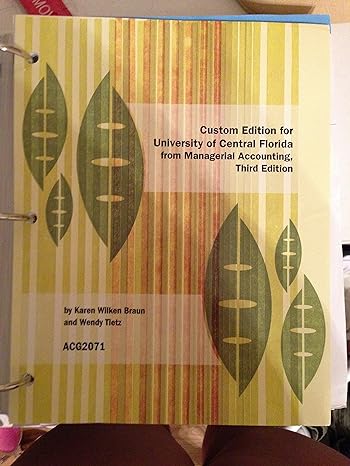Question
Raintree Company has purchased land and a warehouse for $18,000,000. The warehouse is expected to last 20 years and to have a residual value equal
Raintree Company has purchased land and a warehouse for $18,000,000. The warehouse is expected to last 20 years and to have a residual value equal to 10 percent of its cost. The chief financial officer (CFO) and the controller are discussing the allocation of the purchase price. The CFO believes that the largest amount possible should be assigned to the land because this action will improve reported net income in the future. Depreciation expense will be lower because land is not depreciated. He suggests allocating one-third, or $6,000,000 of the cost to the land. This results in depreciation expense each year of $540,000 [($12,000,000 - $1,200,000) / 20 years].
The controller disagrees. She argues that the smallest amount possible, say one-fifth of the purchase price, should be allocated to the land, thereby saving income taxes, since the depreciation, which is tax-deductible, will be greater. Under this plan, annual depreciation would be $648,000 [($14,400,000 - $1,440,000) / 20 years]. The annual tax savings at a 30 percent tax rate is $32,400 [$648,000 - $540,000) x 0.30].
How would each decision affect the company's cash flows? Ethically, how should the purchase cost be allocated? Who will be affected by the decision?
Step by Step Solution
There are 3 Steps involved in it
Step: 1

Get Instant Access to Expert-Tailored Solutions
See step-by-step solutions with expert insights and AI powered tools for academic success
Step: 2

Step: 3

Ace Your Homework with AI
Get the answers you need in no time with our AI-driven, step-by-step assistance
Get Started


